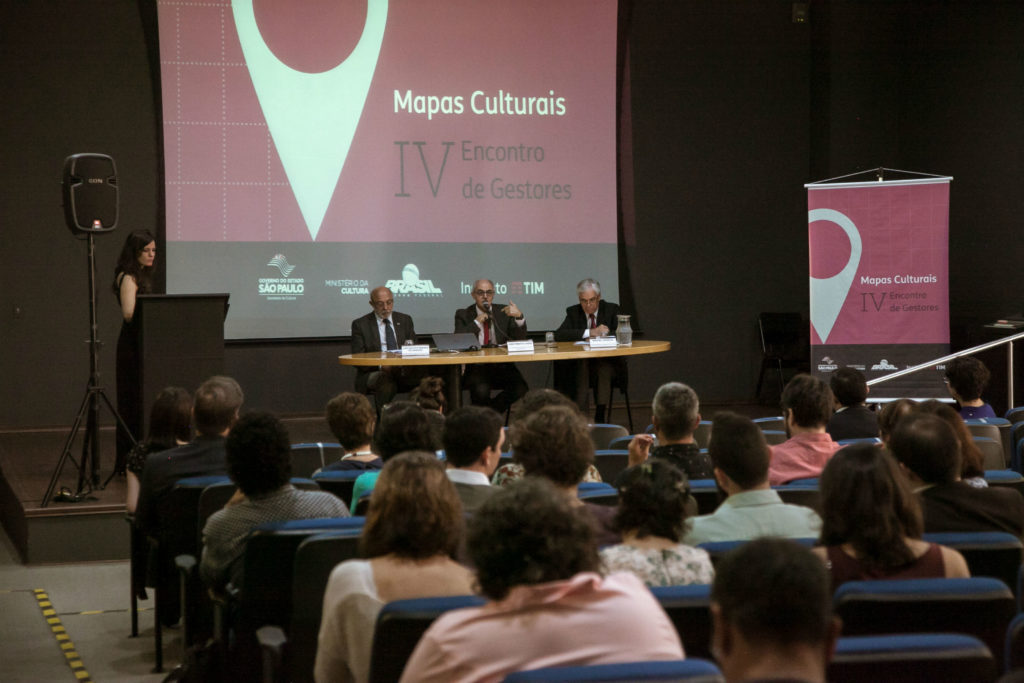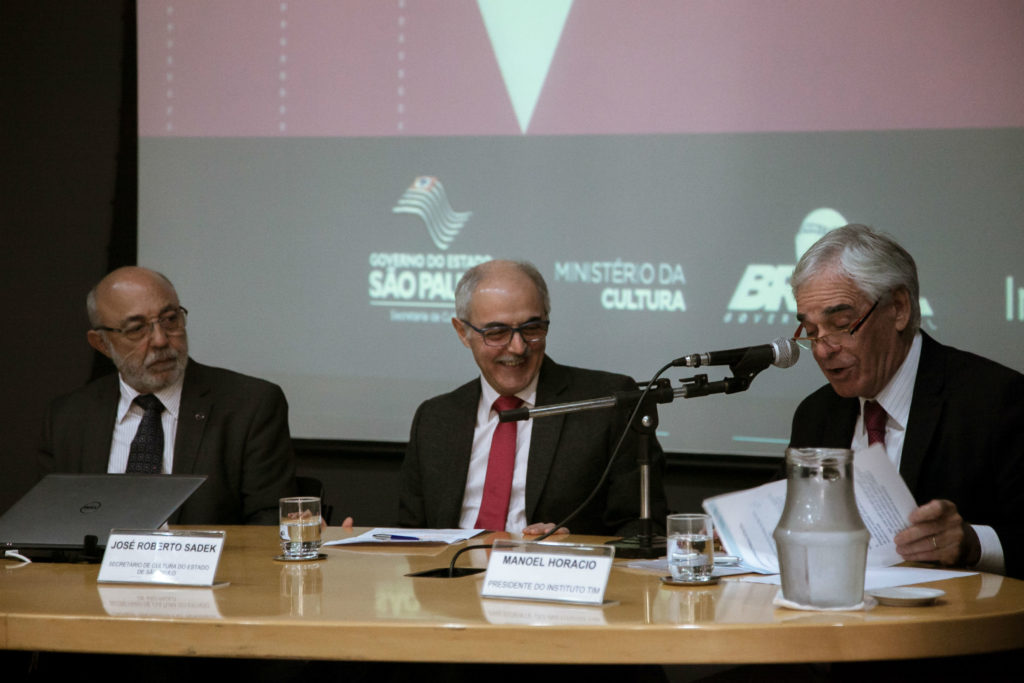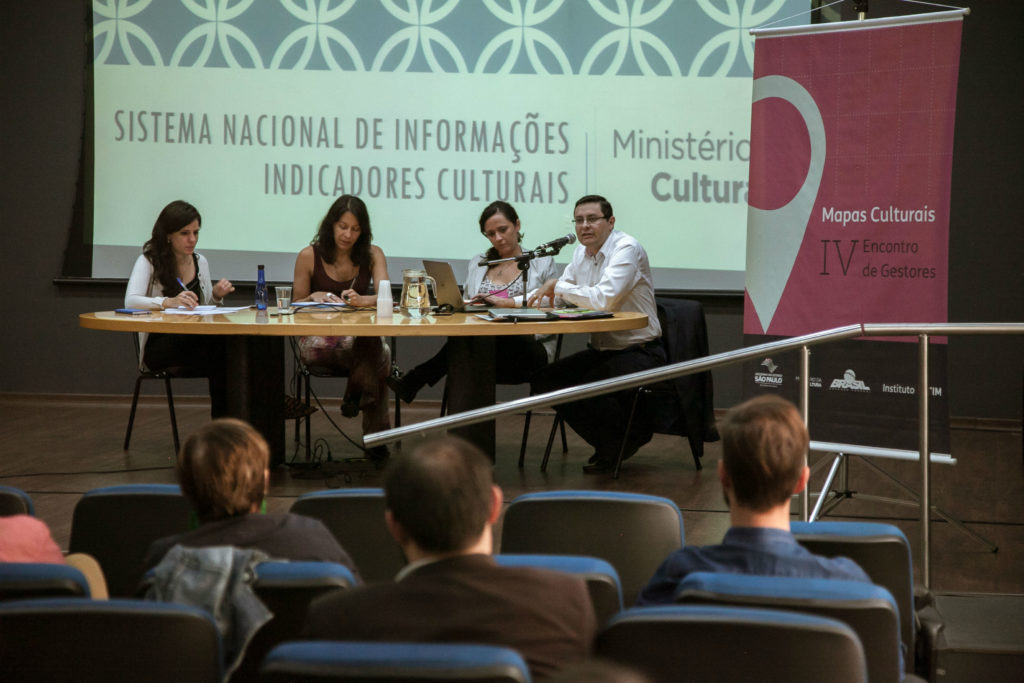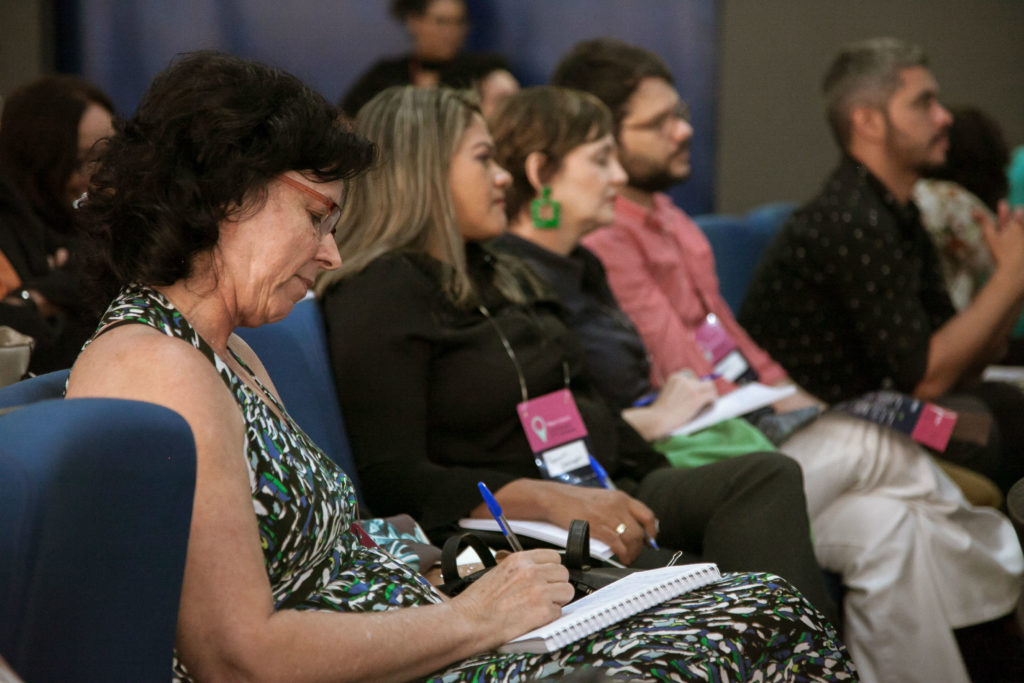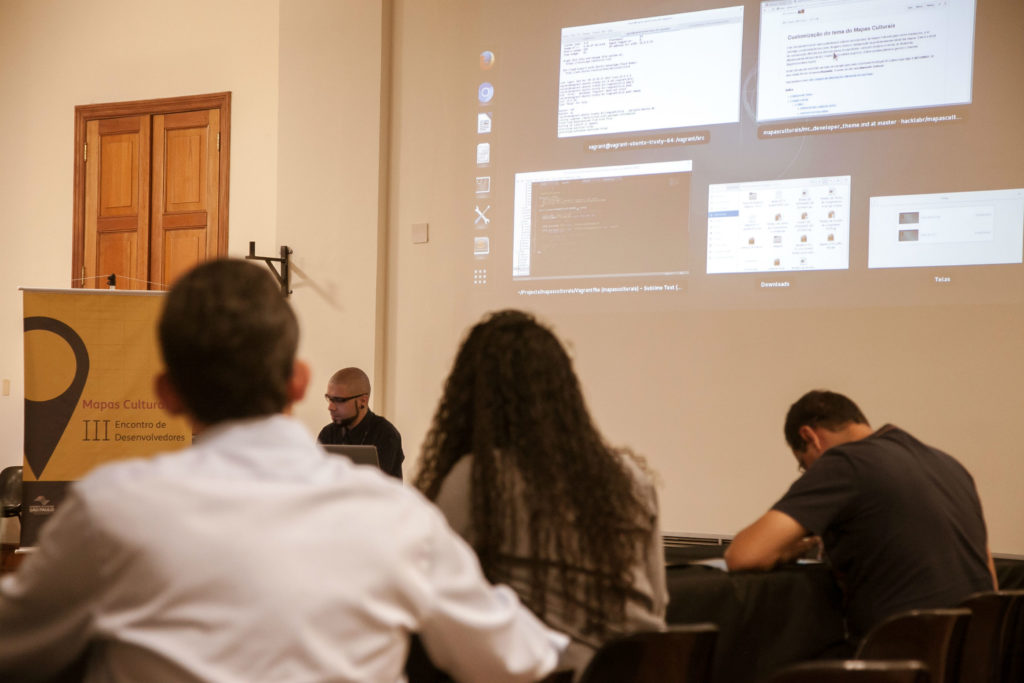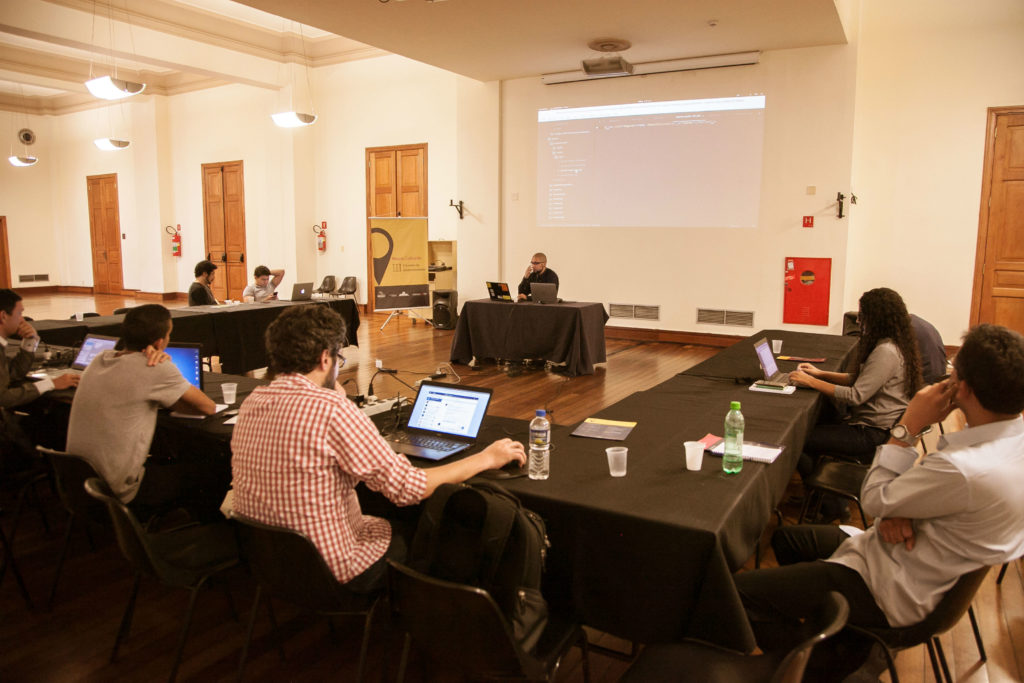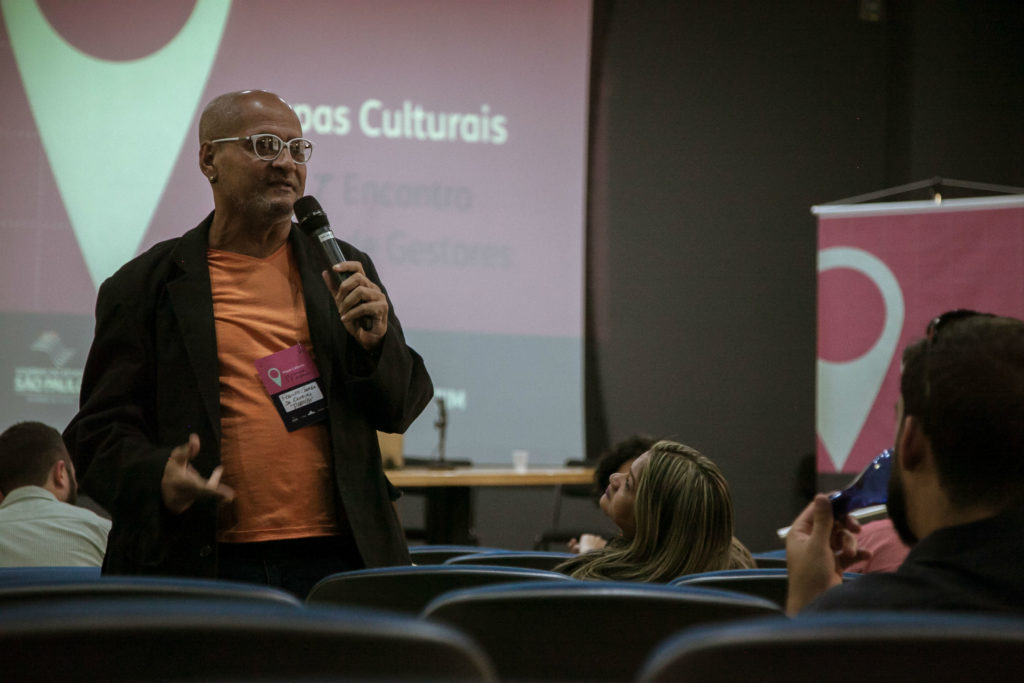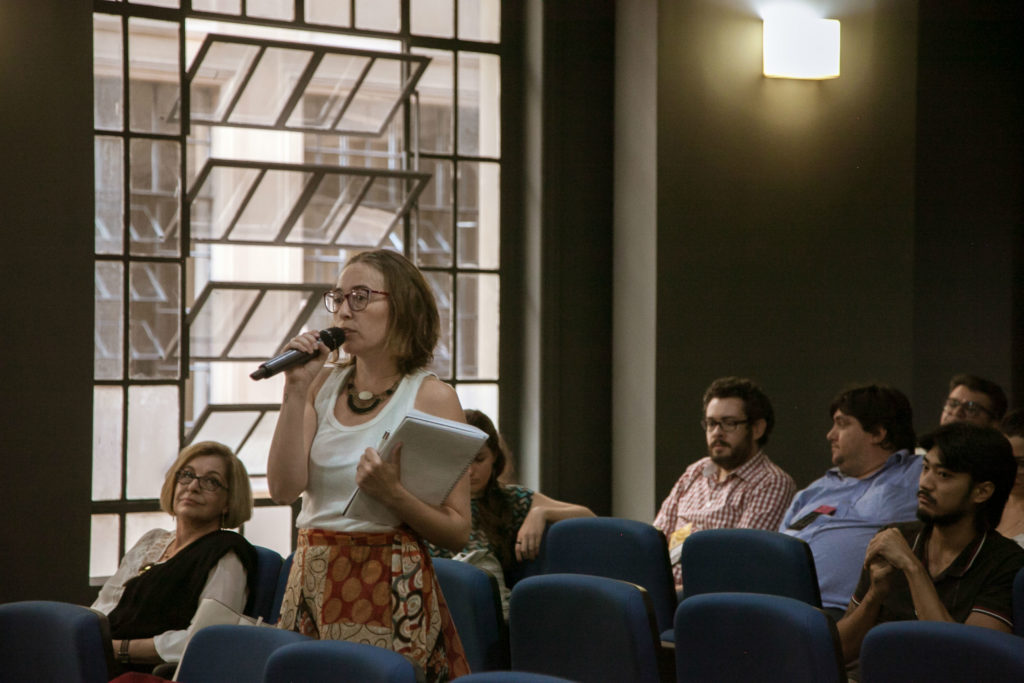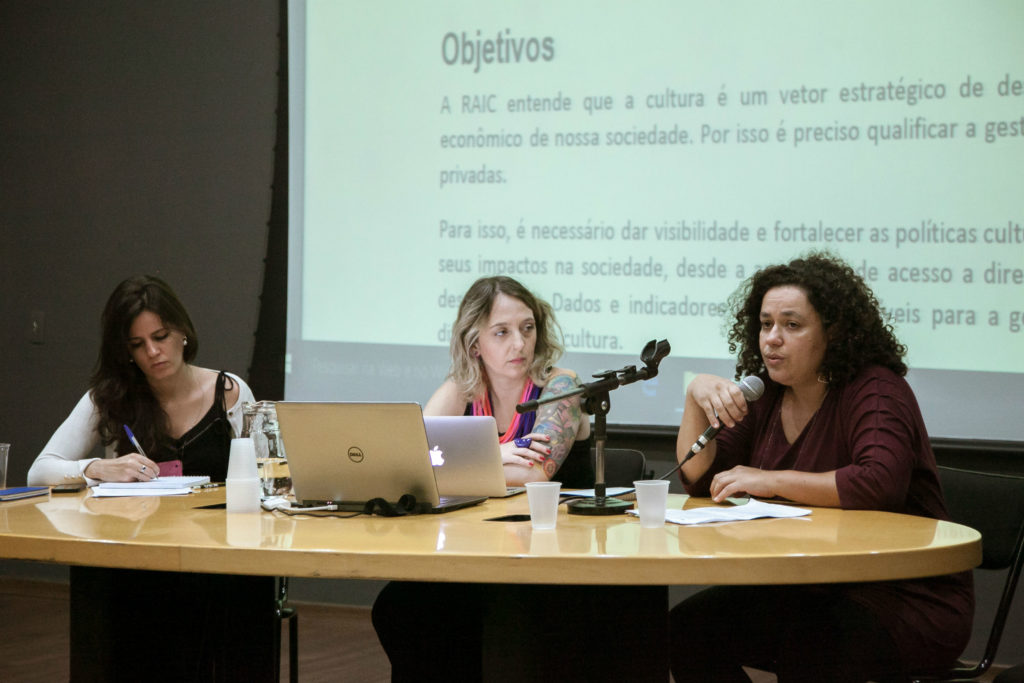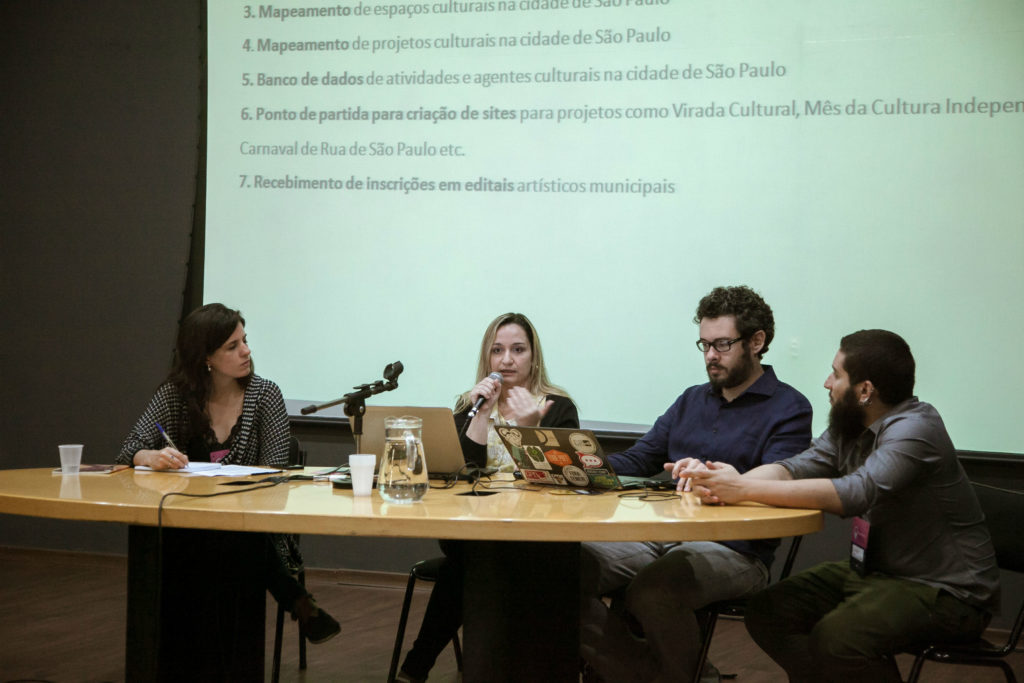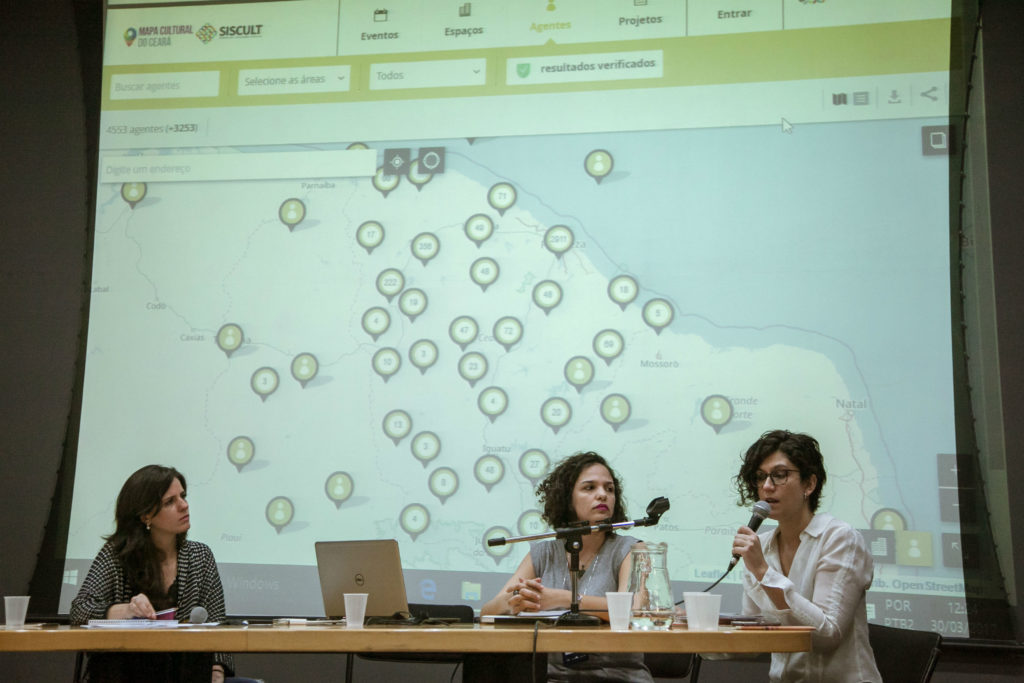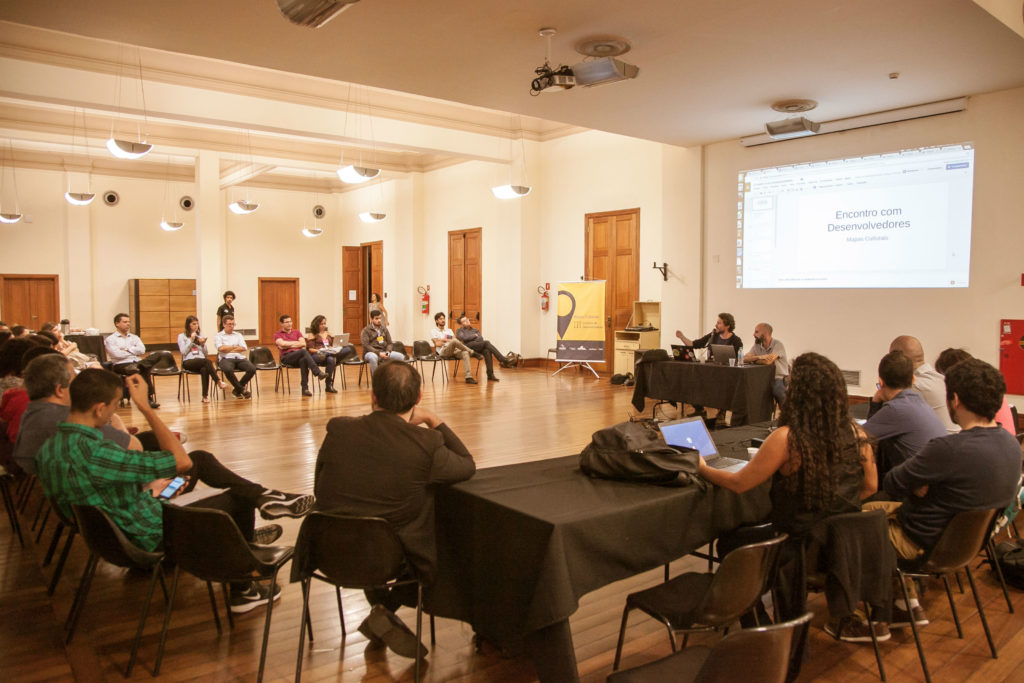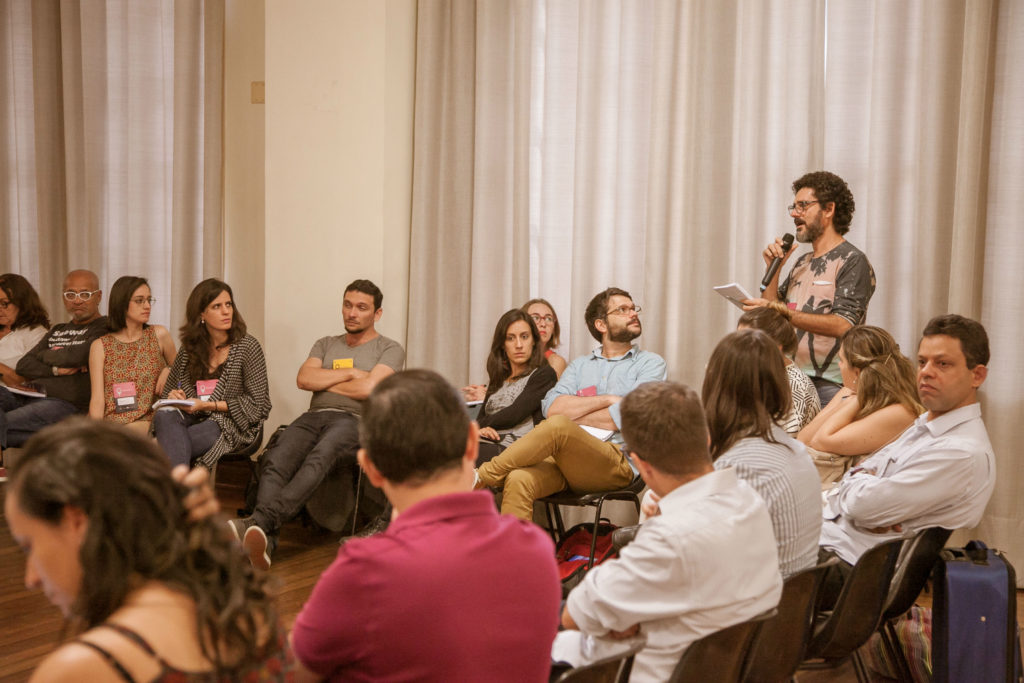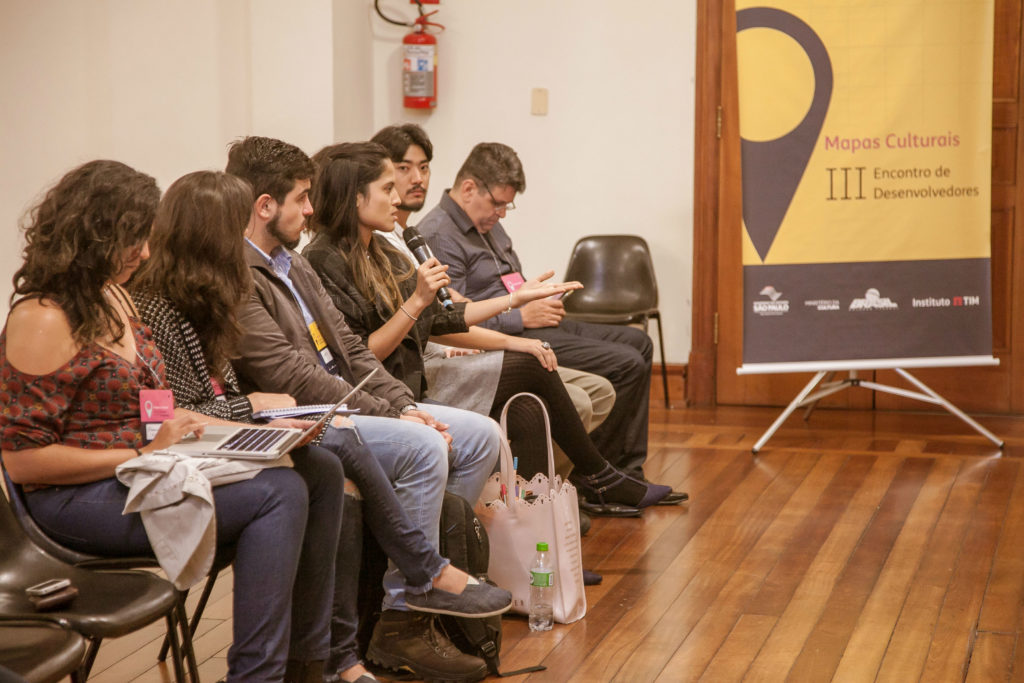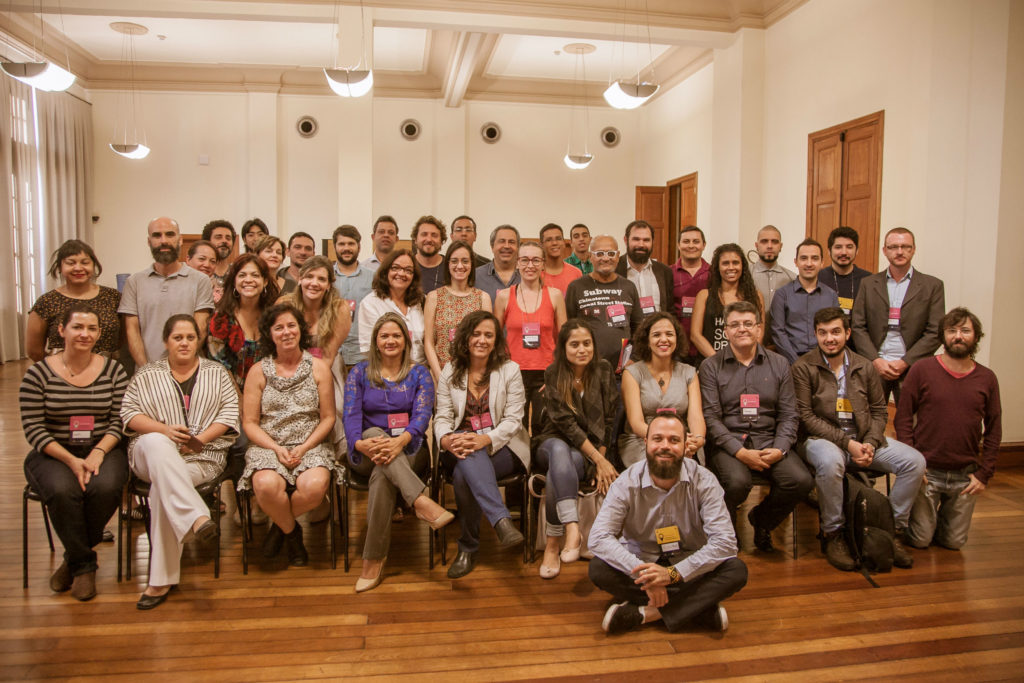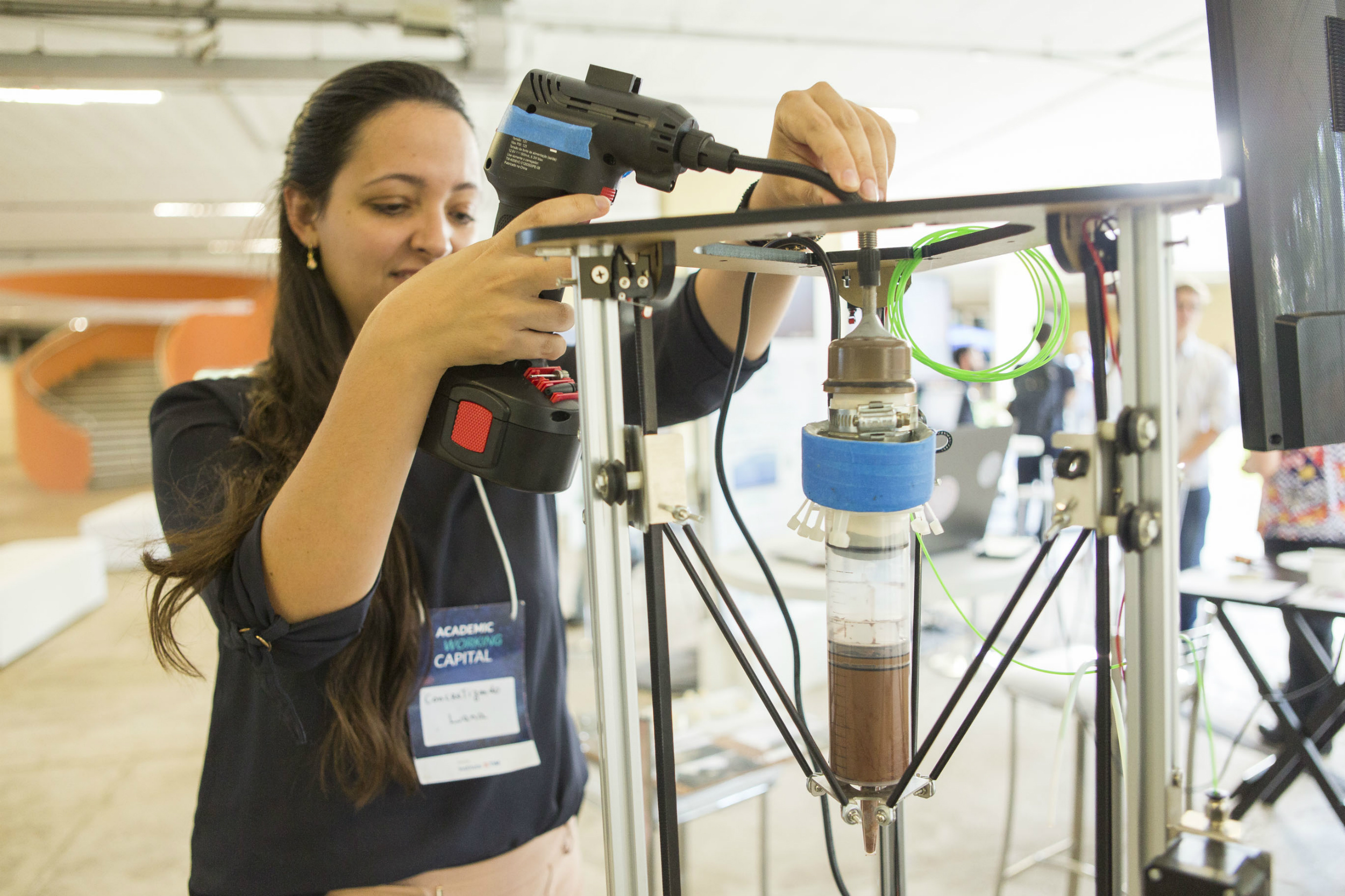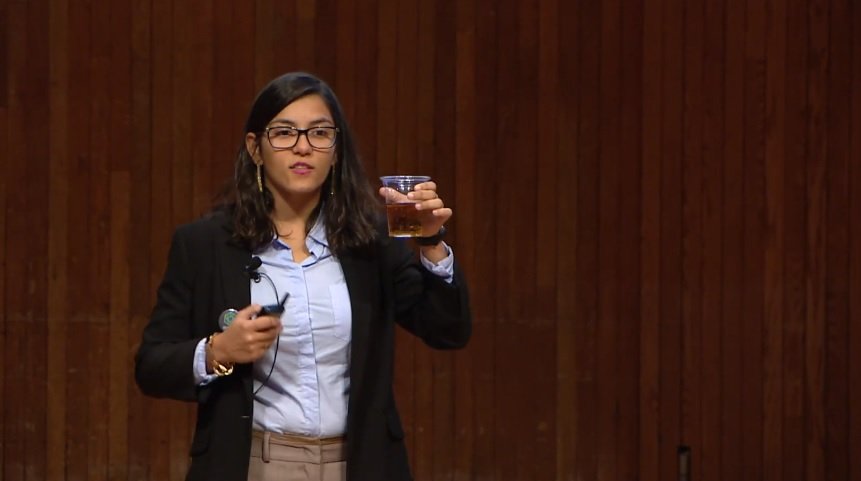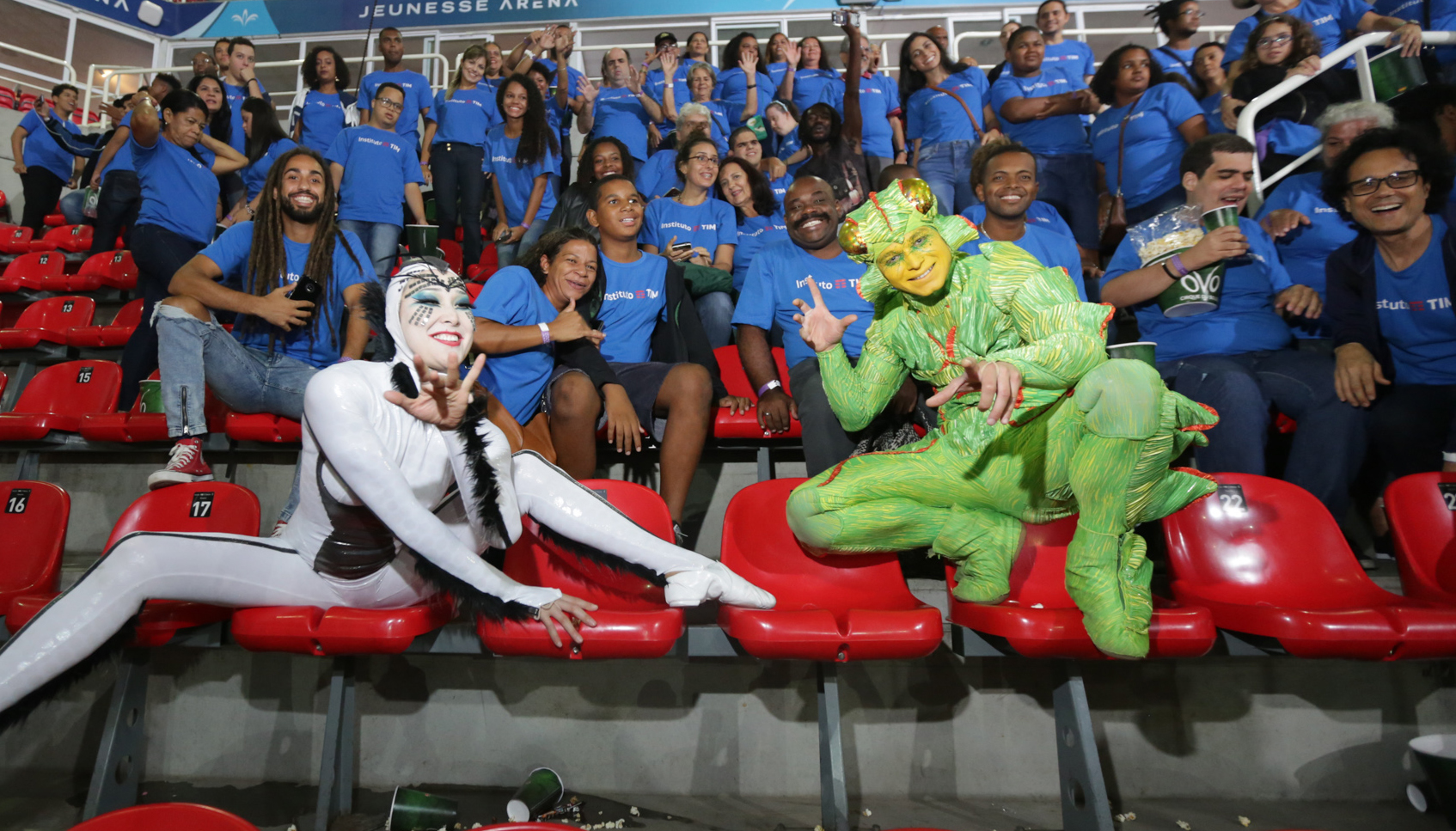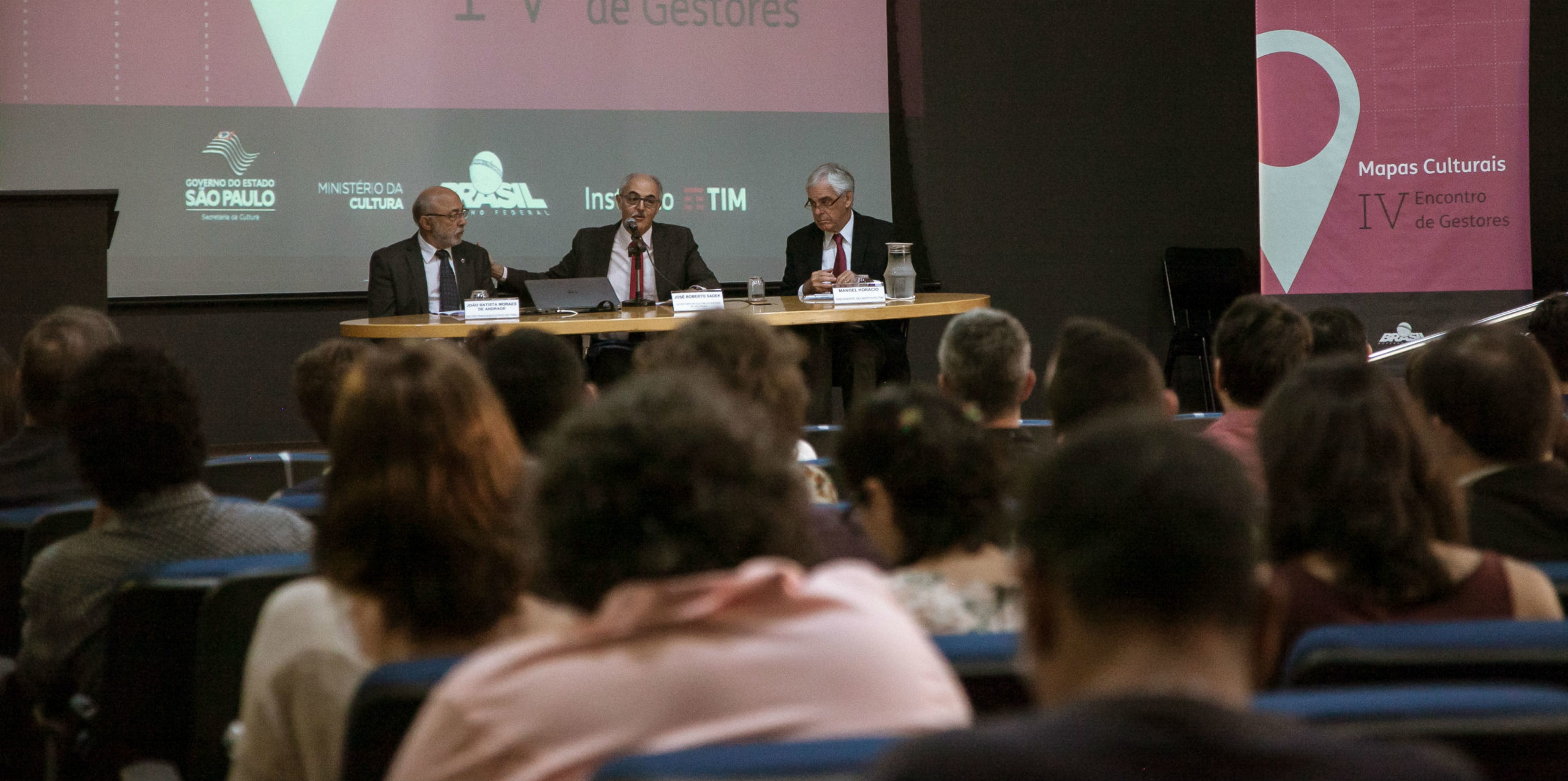
On March 29th and 30th, Instituto TIM, in partnership with the State Department of Culture of São Paulo and the Ministry of Culture (MinC), organized the IV Managers Meeting and the III Developers Meeting of Mapas Culturais. Approximately 70 participants gathered in the two events to exchange experiences, discuss the scenario of the project and talk about prospects for the future. The events were attended by managers and developers of MinC, the Santa Catarina Northeast Municipalities Association (AMUNESC), ten states and ten cities that already use the platform, are in the process of implementation or are interested in adopting it, researchers and representatives of institutions associated with culture.
The opening of the events, carried out at the headquarters of the State Department of Culture of São Paulo, was conducted by former state secretary of Culture of São Paulo, José Roberto Sadek, by the executive secretary of MinC, João Batista Moraes de Andrade, and by the president of Instituto TIM, Manoel Horacio. João Batista talked about the relevance of Mapas Culturais for the culture field to keep up with the several technological changes. “What I find spectacular is to place the concern about knowing what happens in the country in cultural terms within digital platforms, which allow a nearly instant relationship”, he said. Manoel Horacio highlighted the importance of working as a network to the management of Mapas. “Every time we meet and discuss, we improve and enhance the power of this system.”
During the Developers Meeting, conducted by Mapas Culturais team, participants talked about the technical aspects of the platform, such as authentication, customization and the construction of new functionalities. The schedule of the Managers Meeting was mediated by the cultural journalist Nina Rahe and had as topics the extraction of data and cultural indicators, the Cultural Information Articulation Network (RAIC), the development of websites and apps, adhesion strategies and ways to disclose the platform and governance and prospects for the future of Mapas in MinC.
In addition, three major news about the platform were presented: the possibility of classifying agents, venues and events through stamps, the enhancement of the enrollments in public notices through the system and the availability of Mapas as SaaS (software as a service), which will facilitate the adoption of the software by states and cities that do not have proper technological infrastructure and will allow the unification of data among platforms. Participants had moments to present themselves and share experiences, expectations and doubts regarding Mapas. In the end, managers joined developers to better understand the work process regarding the platform development and to give suggestions of improvements from the management standpoint.
The discussion rounds in the Managers Meeting were attended by the general coordinator of Culture Indicators and Statistics of MinC, Luiz Antonio Gouveia de Oliveira; the general coordinator of Technological Infrastructure of MinC, Nitai Silva; the museologist of the Brazilian Institute of Museums Alessandra do Carmo Garcia; the coordinator of Communication and Press of the State Department of Culture of São Paulo, Renata Beltrão; the coordinator of Monitoring and Assessment of the State Department of Culture of São Paulo, Claudinéli Moreira Ramos; the Digital Governance advisor of the State Department of Culture of Ceará, Gecíola Fonseca; the Communication advisor of the Municipal Department of Culture of São Paulo, Giovanna Longo; the researcher of the Research and Education Center of Sesc São Paulo Daniela Ribas; the researcher of the Federal University of ABC Ana Mesquita; the developer Ander Pires, who works with Mapas Culturais in the state of São Paulo; and representatives of the team and developers network of Mapas Culturais.
